Introduction

- Introduction
- What is a Keto Diet?
- The Benefits of a Ketogenic Diet
- The Different Ketogenic Diets Out There
- How to Get Started with a Ketogenic Diet
- Foods to Eat on a Keto Diet
- Foods to Avoid on a Keto Diet
- Keto supplements to consider
- Tips & Tricks for Maintaining a Healthy Ketogenic Diet
- Summary
- Is It Keto?
- Further Reading
The phrase “keto” typically refers to a popular diet based on cutting out food groups to make the body burn fat. It has been shown to be highly effective for many people, who continue to recommend and stick to it today. The diet itself comes from the concept of fasting and the fascinating way in which the body can be forced into healthier, optimized functioning.
The human body is a complex mechanism that stores carbohydrates that can be used for energy. Athletes and disciplined individuals have changed their diets for the longest time and experimented with finding the right balance of nutrient levels to accompany healthy functioning and aid healing, energy levels, and exercise.
Of course, it must be said that humans are complex beings who are all individual in terms of their needs and baseline requirements. While one person might naturally have higher fat stores, another could have significantly lowered. One of the main reasons why people choose the keto diet is because they want to maintain more consistent energy levels throughout their day.
The sugars within carbohydrates are one of the contributors to irregular energy patterns, such as very high spikes followed by rapid plummets. It is important to know how your body functions and uses carbohydrates before beginning a keto diet. This can help you to get the most out of your new diet and also maintain healthy levels of nutrients within the body.
You might find that you are more genetically predisposed to certain nutrient deficiencies, which is why it’s important to introduce supplements with a keto diet in order to prevent any related illness or serious levels of vitamin deficiency that can eventually affect organ function.
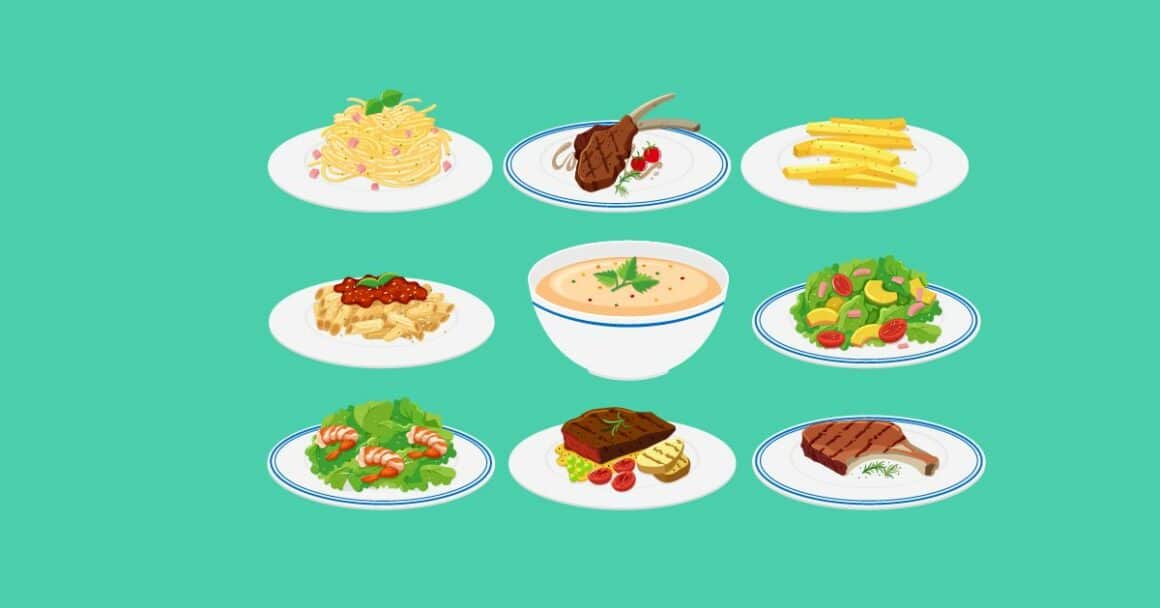
The term ketosis emerged around the 1920s when a doctor named Russell Wilder experimented with a diet that mimicked the fat-burning process by removing all sugar from the diet. This was developed primarily as a treatment method for seizures and became an effective way to manage epilepsy in many patients.
There was some scientific evidence about the use of increased ketones in the bloodstream that reduced seizure severity and frequency. It wasn’t until the seventies that the dieting craze grew, and more people began experimenting with their fat intake. In 1972 Robert Atkins’ publication made more and more people want to try high-fat diets with little to no carbs to see the effect on wellbeing, overall mood, and energy levels.
Popularity grew across the western world over the following years as more people began experimenting with diets. Increased amounts of people were attempting to maximize their energy levels with minimum deprivation, and the large part was successful.
As with any dieting method, there are risks involved because the body takes time to adapt and to learn where to get its nutrients from. It can feel difficult to start because you may feel more hungry or even lethargic, but it’s definitely worth persevering to see the results.
A common term is known as keto flu, which involves noticeable fatigue and ketosis headaches that result from making dramatic changes to the diet over too short a period. While symptoms usually go away after around two weeks, it is recommended that you use supplements to remain healthy and maintain an effective immune response.
Another essential piece of advice is that your body is probably trying to tell you something if you feel unwell. Gradual changes to your diet are much easier to adapt to and make the transition to a less carb-based diet. This is also a great way to ensure you stick to it, as gradual changes encourage you to develop new eating habits and reinforce a more conscious decision process when thinking about your meals.
Whether you want to implement a more efficient metabolism, optimize energy levels, kick-start the fat-burning process, or even if you simply want to find out more about the dieting method, this is a great place to start. This is an easy-to-follow guide that aims at debunking a lot of myths surrounding the keto diet and providing you with all the facts so that you can make your own dietary decisions.
It’s essential that you feel like the author of your own decisions when it comes to food because it can feel less intimidating and easier to remain disciplined and motivated when you are confident and self-assured. This guide attempts to answer some common questions and provide helpful starting points, as well as suggestions for supplements and additional nutrition that your body would benefit from.
The world in which we live today is one of excess, with everything we could ever want or need available in abundance. This can be problematic because we are spoiled for choice and overwhelmed with options. People are encouraged to consume more and access heavily processed foods that contain high amounts of carbohydrates and hidden calories.
We, as consumers, are simply a product of our environment, and it can be extremely difficult to challenge ourselves and our ingrained behaviors as well as food habits. However, it has been shown that it is possible to change habits, it is just hard to know where to start and how to know what foods to avoid. Keto diets can offer a great way to challenge yourself and make you think before deciding what to eat.
What is a Keto Diet?
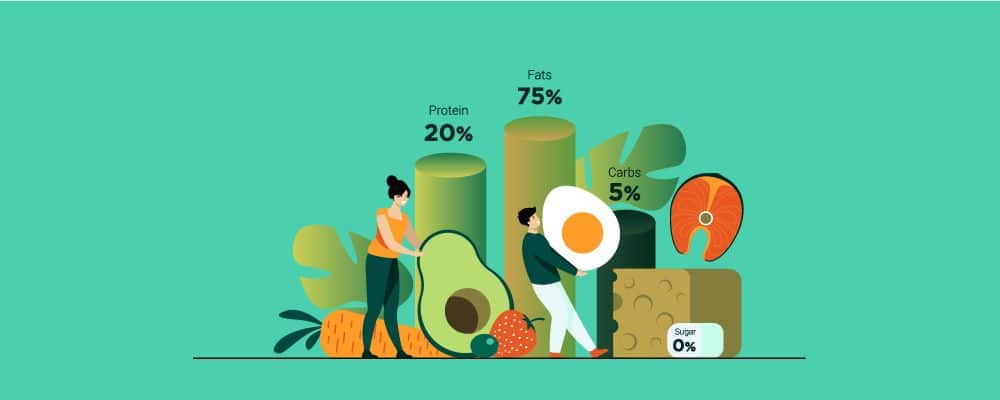
To define a keto diet, it’s important to acknowledge that it gets its name from the ketosis process within the body. This is when the body uses fat instead of carbs for fuel. The metabolic state of ketosis comes from the ketones produced by the liver during the fat-burning process.
These are used in the absence of glucose to fuel the body and provide energy. Using up stores of energy can be beneficial at providing longer-lasting energy that is more consistent throughout the day.
A keto diet that is aimed at inducing that process is through consuming low-carb, high-fat foods. After a time, the body enters this state and gradually becomes more efficient at burning fat because it is being encouraged to use the stores rather than build them up.
For many who might be struggling with food intake and energy levels, a keto diet can be a great way to reset their metabolism. There are different versions of the keto diet, varying in levels of restrictions and largely determined by what your body needs the most. A good place to start is by using a ketogenic calculator to work out how many calories you need to focus on and where you should be getting them from.
The keto diet is popular among celebrities and influencers.
Joe Rogan has previously tried multiple diets including the keto diet, the carnivore diet, and other similar meal plans. Here is a full list of the supplements Joe Rogan takes no matter what diet he is on.
The Benefits of a Ketogenic Diet

We’ve already covered some common benefits of the keto diet that cause people to want to try it. A unique selling point of a ketogenic diet is that it has some different health benefits. Naturally, weight loss is one of the most popular reasons why ketosis is so widely tried. More and more people are attempting to reset their metabolisms to function properly and allow better energy levels.
An added benefit of a diet that is low in carbohydrates is the appeal to people with diabetes who might be struggling to avoid hidden sugar levels in foods. This is why a lot of members of the diabetic community have adopted the keto diet and adapted it to suit their lifestyle and basic needs.
Additionally, keto diets are beneficial for those experiencing prediabetes symptoms such as blurred vision, excessive hunger, fatigue, and increased thirst. Cutting out a lot of the sugar in your life can allow your body to respond correctly and optimize metabolism function, as well as improve energy levels.
We briefly discussed the history of the ketogenic diet, and a big part of the development was the role that it played in patients with epilepsy. The fat-burning process is more of an afterthought in its origins because the diet was administered to those suffering from seizures. It was one of the few things that consistently helped patients and enabled them to keep better track of their seizures as well as feel more in control of their lives.
Other medical benefits of a high fat, low-carb diet include reducing the risk of developing heart diseases, and other life-threatening illnesses such as cancer. Ketogenic diets can allow people who suffer from a range of medical conditions to live independently and enjoy longer lives. Sugars within carbs are responsible for a lot of health conditions, and many are benefitting from consuming a lot less of it.
The Different Ketogenic Diets Out There

As it has grown in popularity within the modern world, some different versions of the keto diet have come to light. This is because people live in very different ways, and it encourages more people to try it when there are options available. Depending on what you want to get out of a keto diet, you can see the benefits of each type and decide which would suit your lifestyle the most.
Standard
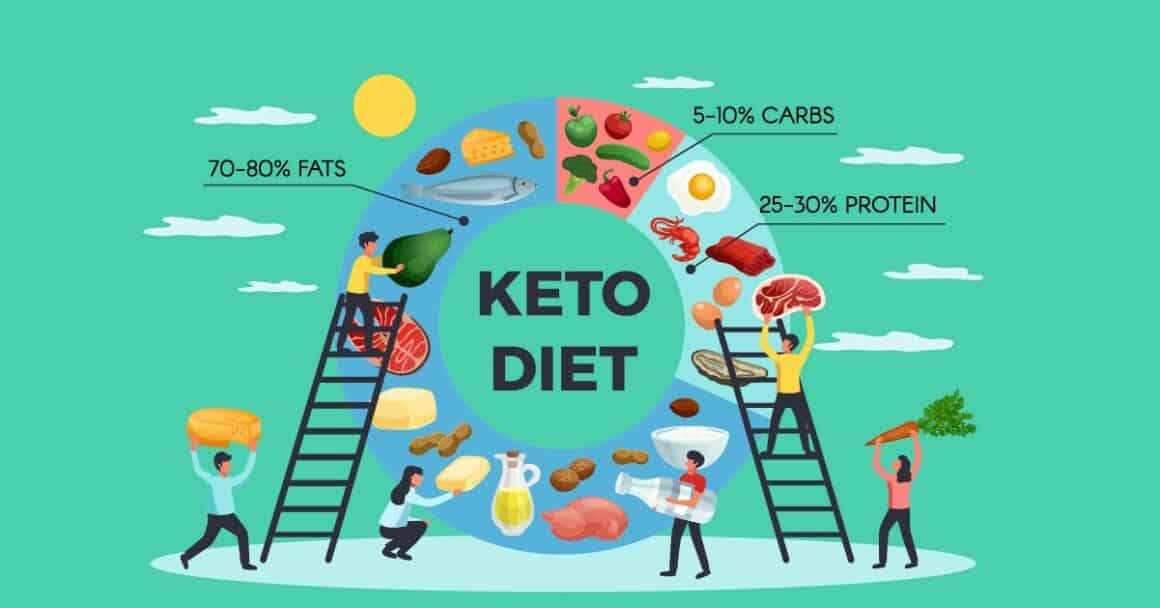
Known as the Standard Ketogenic Diet (SKD), there are hundreds of diet plans based around this available online because of its widespread use and popularity. High fat, moderate protein, and low carbs are the basis of this diet. This is one of the most common versions that people follow when it comes to trying the keto diet. The ratios that people try to stick to are 70% fat, 20% protein, and 10% carbs per day.
Cyclical
The Cyclical Ketogenic Diet (CKD) is a great way to plan meals and encourage self-discipline. Following a rotational method of re-feeding and then going back to reduced carb days, CKD is among the most popular. Users will follow a beginner method of 5-6 days of a standard keto diet, then introducing 1-2 days a week of higher carb intake.
Healthy fats should make up 65-90% of your diet on keto days, and it can be a good way to introduce the body to the ketosis process.
Targeted
This is usually done in accordance with workouts and is a lot more flexible than the other options. The main benefit is that your exercise performance will greatly improve, and people have reported having greater levels of strength and power when practicing the targeted ketogenic diet.
In order to feel the complete benefits of the targeted process, you will need to already be in the ketosis process. For this reason, this isn’t the most appropriate option for beginners who are new to the keto diet or aren’t as focused on their workout performance.
High Protein
This is relatively similar to the standard ketogenic diet, but the ratios are slightly different because the focus is on adding protein as well as fat. This can be a great option for beginners because it can often be hard to find a lot of foods that are high in healthy fats.
The ratios are usually 60% far, 35% protein, and 5% carbs. One drawback of higher amounts of protein is that the body is then encouraged to use the excess protein to produce glucose, which counters the effects of the ketosis process.
How to Get Started with a Ketogenic Diet
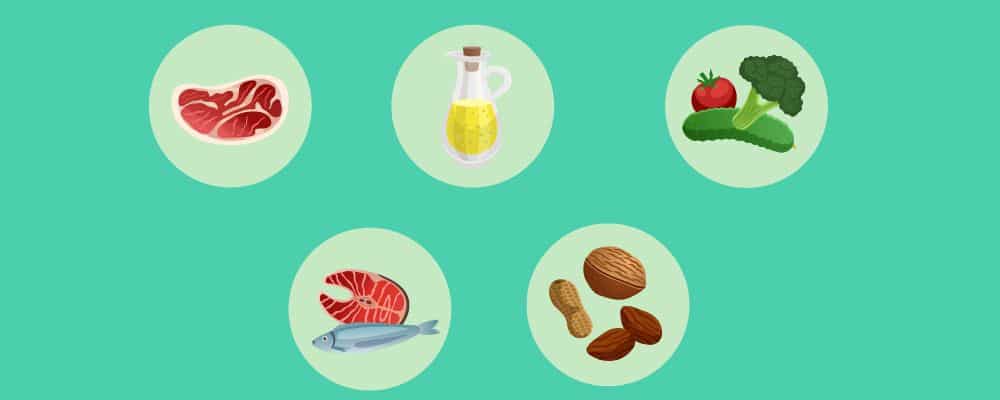
These are some great ways you can introduce a keto diet into your daily routine and how to encourage yourself to stick to it. The most important thing is that you find something that works for you and fits into your lifestyle.
These are some ways to keep track of your progress and to encourage you to be adventurous with recipes and find new foods that you like and don’t like. Planning ahead is another great tactic for those with busy routines because it can be reassuring to know that there is an option for you in the pantry if you want a snack.
Work with a dietician
This is a great way to plan ahead and encourage you to focus on finding what works for you and your routine. If you have access to a dietician, make sure that you ask common questions about how you can gradually change your eating habits and integrate a healthier lifestyle into your routine.
Exercise goes hand in hand with a suitable diet, and it’s also important to work on integrating some weekly workouts into your routine if you haven’t already. Finding a way to move your body that you enjoy, swimming, dancing, or even a daily walk can help keep the blood moving and contribute to a healthier immune system and cardiovascular health.
Another thing to run by a dietician is supplements and vitamins that you might be considering taking. There are a lot of products marketed as being great for your general health that have some hidden ingredients.
A dietician can show you what ingredients to look for, and how to properly check the ingredients as well as carb content in other foods.
Of course, eating out can be the most challenging part for someone sticking to a keto diet. That is why it’s essential to plan your options ahead of time and find a failsafe dish you can enjoy without worrying about the consequences.
Select a sustainable meal plan
It can be easy to decide on a meal plan that works in the short term, but a keto diet is designed to benefit you in the long run. That’s why it’s important that you browse through different meal planning methods and think about what style works for you. Try to find ingredients that are rich in nutrients and double the amount you’re cooking so that you can have a meal in the refrigerator when you don’t have much time.
Changing up your diet can be a great way to build up confidence in the kitchen because you will be encouraged to make more meals for yourself that are balanced and tasty. If you enjoy prepping ahead of time, you could even make some staple items or keto-friendly snacks to keep during the week. Some of these are listed below. Make sure that you find a way of planning your meals that fits into your budget and lifestyle.
Keep a diary/journal
Another great way to keep track of your progress if you don’t have access to a dietician is to document your keto journey using a journal or diary. This acts as a great motivator because you can use it as a way to hold yourself accountable and compare some old recipes with current preferences.
If you’re looking to keep all of your details in one place, this can be a good way to write out a weekly meal plan, or even document how you are feeling each day while on the ketosis journey.
Foods to Eat on a Keto Diet
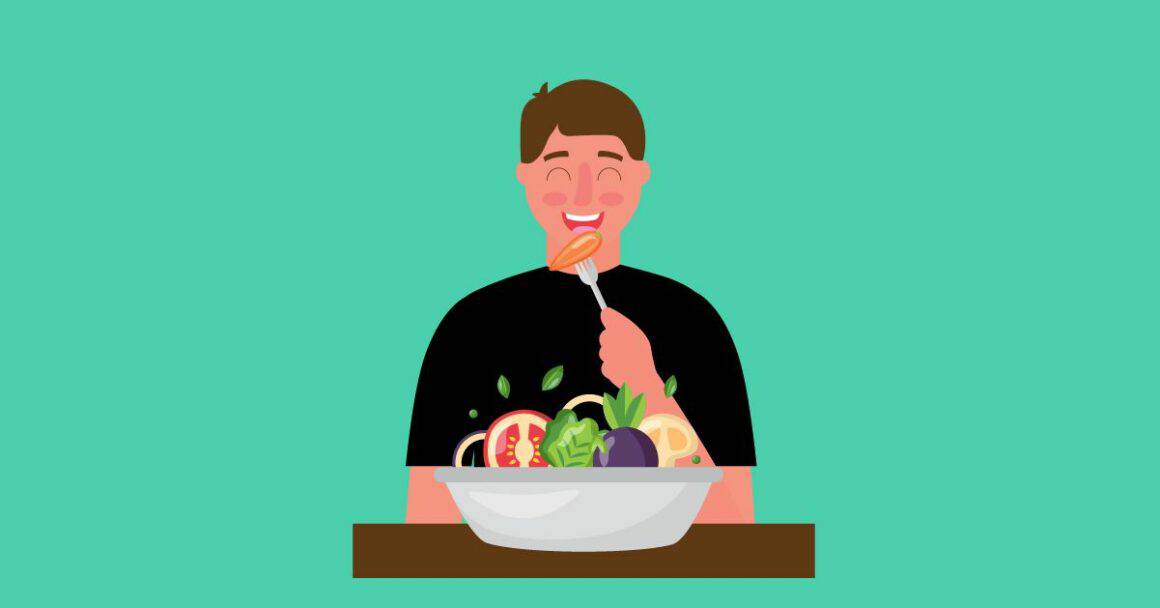
Some great ways you can get healthy sources of fat and protein are listed below.
Meats
This is a great way to ensure your body gets the nutrients it needs to stay fueled and healthy. Meat can be an effective way to build meals because it is usually the main body of a keto diet. Red meat, steak, poultry like chicken and turkey, sausage, and bacon are all good for bulking up meals and can typically be prepped ahead of time to create some healthy snack or lunch options.
Fatty fish
The oils within fatty fish offer a good array of health benefits, from the eyes and brain to the skin. It’s no wonder why so many people are using fish as the protein of choice in a lot of keto dishes. If you aren’t too sure of what fish you like, you can try salmon, trout, tuna, or mackerel for effective meals or snack options.
Eggs
Like fish, eggs have a lot of protein and healthy fats, so are huge parts of the keto diet and meal plan. You can make some great dishes and breakfast options using omega-3 rich eggs. Alternatively, you could hard-boil a lot of them at once and keep them in the refrigerator for instant boosts of energy and keep you fueled on the go. This is probably the most versatile ingredient within the keto diet because you can do so much with it.
Cheese
Less processed cheeses are ideal because it is easier to tell where the ingredients come from and calculate the protein and fat content accordingly. Mozzarella, goat’s cheese, cheddar, blue cheese, and cream cheese are all great additions to the keto diet because they are fatty and bulky so will enable the process to begin. When combined with eggs, cheese can be another versatile ingredient to make breakfasts or snack options.
Vegetables
Non-starchy vegetables are essential in any diet because they provide valuable sources of nutrients and vitamins. Broccoli, cauliflower, peppers, leafy greens, mushrooms, and onions are all perfect for keeping you full and bulking up any meal.
â¡ï¸ Best Lion’s Mane Supplement
â¡ï¸ Ryze Vs MUD WTR
Nuts and seeds
This is another way to get natural, healthy oils into your system and keep you fuelled throughout the day. Nuts are perfect snacks, and you can sprinkle some seeds on top of most dishes. You will be surprised by what adding more nuts to your diet will do for your energy levels.
Of course, this is more complicated for allergy sufferers, and consult a doctor or dietician before integrating more nuts into your routine if possible. Some great additions are chia seeds, flaxseeds, cashews, almonds, pumpkin seeds, pistachios, and walnuts.
â Will Mushroom Coffee Break A Fast?
Foods to Avoid on a Keto Diet
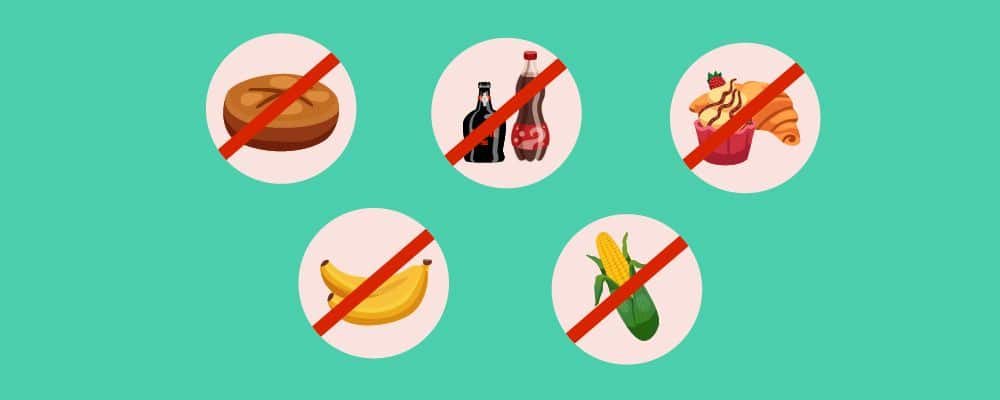
It can be hard to know what to avoid specifically when the principles of a keto diet are to avoid carbs. Some of the common carbohydrates that are high in sugar that you can start trying to avoid include:
Sugary foods
The obvious one to avoid when starting a diet is sugary foods. However, there are some that are naturally sweet, which are also recommended avoiding if you’re trying to enter ketosis. Of course, soda, candy, ice cream, and cake are all high in unnatural sugars, not to mention other unnatural ingredients. Other foods include smoothies and fruit juices because they are usually very concentrated with sugars. A lot of juice brands will even add sweeteners to their product.
Fruits
It seems a little strange to be saying that you should avoid fruits on a diet, but some can be very high in sugar, especially if they are very sweet. High-carb fruits should be avoided if possible, like melons and tropical fruits. Some which are alright to consume while doing a keto diet are very small amounts of berries in moderation, avocado, and tomatoes.
Grains or starches
Anything that lists a primary ingredient as something wheat-based is generally bad for ketosis and should be avoided if possible. Rice, bread, pasta, and cereals are all off the menu, unfortunately, as well as starchy vegetables like potatoes and parsnips.
Beans or legumes
This one can be hard, especially if this is a common source of protein in your normal diet, but like the other foods on this list, beans and legumes will try to inhibit the ketosis process and encourage the body to create more glucose. Try to avoid lentils, chickpeas, peas, and kidney beans as much as possible.
Alcohol
There is a reason why most diets encourage you to reduce alcohol intake or completely stop consuming it. It can have a lot of hidden sugars and act as a carbohydrate in the body. Alcohol slows down metabolic function and can have negative effects on your mood and even your immune system. Beer, wine, liquor, and mixed drinks are all high in sugars, so should be avoided if you can.
Keto supplements to consider
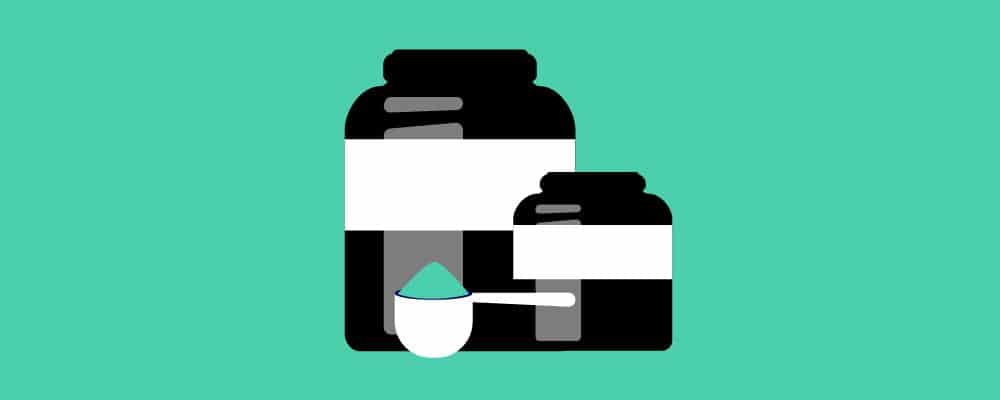
There are several reasons why you should consider taking supplements when following a keto diet. Depriving the body of certain food groups creates lowered immunity to viruses, so it’s important to rebuild that where possible. Check the ingredients carefully before investing, and make sure that you are taking healthy levels of essential vitamins and nutrients in order to maintain normal organ function and general health.
Part of keto diets involves cutting out a lot of foods, which is why the body is likely to suffer when first introduced to the process. If you’re trying to prevent “keto flu” then it is recommended that you invest in some of the following supplements.
Magnesium
This is an important thing to maintain good levels within the body because it aids the immune system, boosts energy, and regulates blood sugar levels. Magnesium is something that a lot of people need when following a keto diet because many magnesium-rich foods are also high in carbs and therefore avoided. Natural sources of magnesium are spinach, mackerel, and avocado. Does magnesium make you poop?
MCT oil
This is something that is found in more fatty foods and can help fuel the brain and muscles. Supplements for MCT oil are available in forms that you can add to shakes, and can also be found naturally occurring in coconut and palm oil. Of course, supplements offer a more concentrated form of MCT oil and can be ideal for someone starting a keto diet.
Seeing as most coffee creamers are off the table (e.g. Coffee Mate is not considered keto-friendly), MCT oil can be a great option to add to your morning coffee. There are even specific creamers available for those on the keto diet that include MCT oil from natural sources.
Omega-3 Fatty acids
We all know how important it is to eat oily fish because of their high omega-3 content, but taking a supplement can help reduce inflammation in the body. The ratios can be thrown off within the body when changing diets, so it’s important to maintain levels where possible.
Vitamin D
This is a great all-around vitamin that helps with the normal immune response as well as regulating cellular growth within the body. This is recommended to all people regardless of their diet because there are not many naturally occurring vitamin D-rich foods. Vitamin D is one of Dr Rhonda Patrick supplements that she recommends most.
Digestive enzymes
Nausea is very common in keto diets for beginners because most people aren’t used to digesting high amounts of fats. Taking a blend of enzymes that are designed to help the body break down food and heal properly can help you get used to the new diet.
Exogenous ketones
This is slightly less essential, but it has been reported to help people reach the ketosis stage faster. Not only that, but adding more ketones can help improve performance when working out because it can aid in tissue regeneration.
Greens powder
One way to focus on your vegetable intake is to add greens powder to recipes. This is a good way to incorporate more green vegetables, although most people opt for simply eating more spinach, broccoli, and kale. Take a look at our list of the best greens powder or our Athletic Greens review here.
Electrolyte Supplements
This is particularly important during the first few weeks of making the diet change because the body can lose a lot of water and electrolytes. Replenishing this can enable correct bodily function as well as improved cognitive function. This is also important for many athletes who want to maintain good fluid levels.
Supplements for athletic performance
If you are wanting to add a lot of endurance sports to your routine and really push your body to its limits, some supplements below could be good for encouraging muscle repair, optimum performance, and reduced recovery periods.
- Creatine Monohydrate
- NMN Supplement
- NR Supplement
- Beet Supplement
- Caffeine
- BCAA
- HMB
- Beta-Alanine
- Berberine
- Vitamin D3 and K2 Supplements
- CoQ10 – Best CoQ10 Brands
Many of these are supplements that David Sinclair takes. The professor of genetics at Harvard Medical School is known for his work on aging, life extension, and epigenetics.
Tips & Tricks for Maintaining a Healthy Ketogenic Diet

One of the main problems with people who try a keto diet is that they are impatient. They usually want to see instant results and don’t want to wait for signs of progress. The human body is a complex mechanism that works hard every day to keep us alive. It’s no wonder why it takes a little time to enter the ketosis phase. Be patient and try to stay motivated.
Another great way to stay motivated is to get a friend or family member to start a keto diet with you. This can help immensely because you have a form of social support, motivation, and encouragement. You are able to bounce recipe ideas off each other and can even schedule weekly workouts together.
One of the main issues with common diets is that they are very extreme and hard to stick to. In the long run, it’s more important that you integrate healthier habits and get back on track, rather than dwelling on the fact that you might have slipped up once or twice. Be forgiving and kind to yourself, and try to stay motivated. A diet buddy can offer great support during these difficult times.
Summary
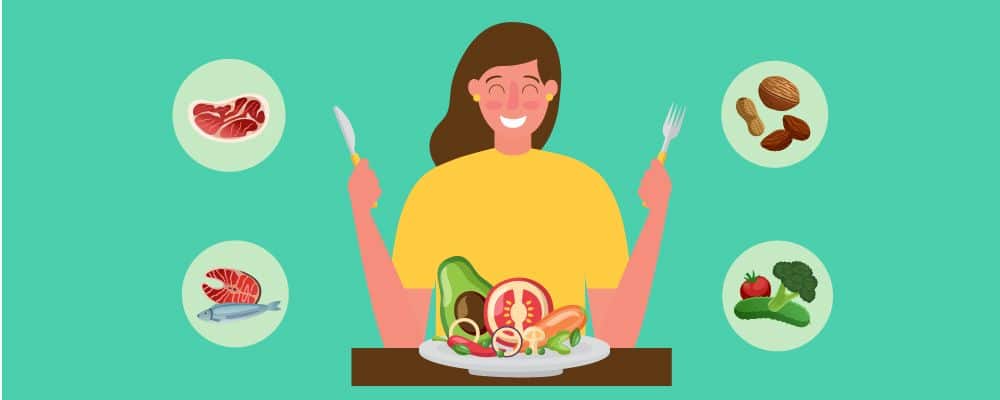
Hopefully, by now, you feel more educated and confident in deciding whether the keto diet is right for you. More detailed advice can be found using the links mentioned above, and it is just as important that you speak to a medical professional about your body’s needs. Knowing what your body needs as well as how to maintain healthy functioning is a great way to become more self-aware.
This can add to your confidence levels, not to mention overall energy changes. There are many scientific benefits to a keto diet, including providing a more positive way of thinking and a more optimistic perspective towards the world. Keto diets are complex and can vary in terms of effectiveness.
Of course, there are risks to changing your diet and routine, such as illness and initial discomfort that comes with adding more fats into your diet. However, the long-term gains will see your body functioning more efficiently and will be less likely to add to fat stores. Speak with your doctor if you are considering trying a keto diet and be sure to make small gradual changes to find something that works for you. If you have diabetes or prediabetes, consult a doctor before attempting to reach ketosis. Good luck on your keto journey!
Is It Keto?
Is Hellman’s Mayo Keto Friendly?









